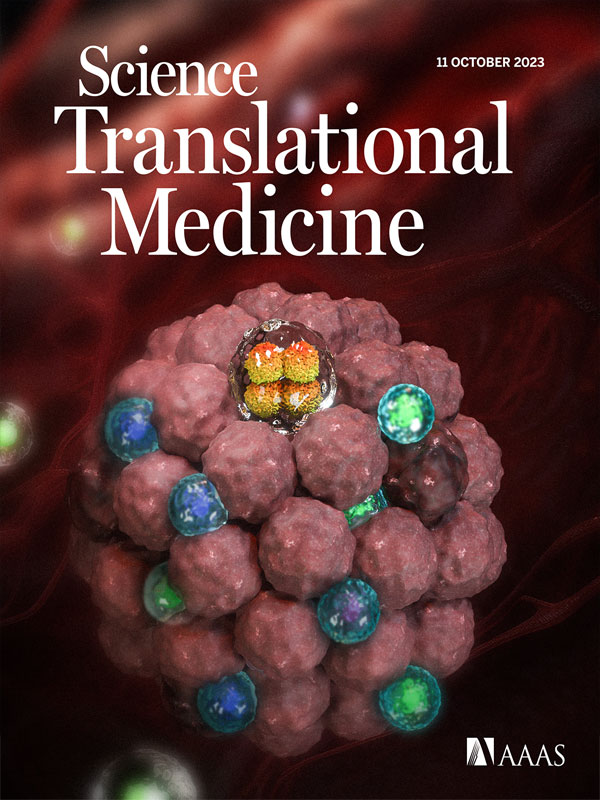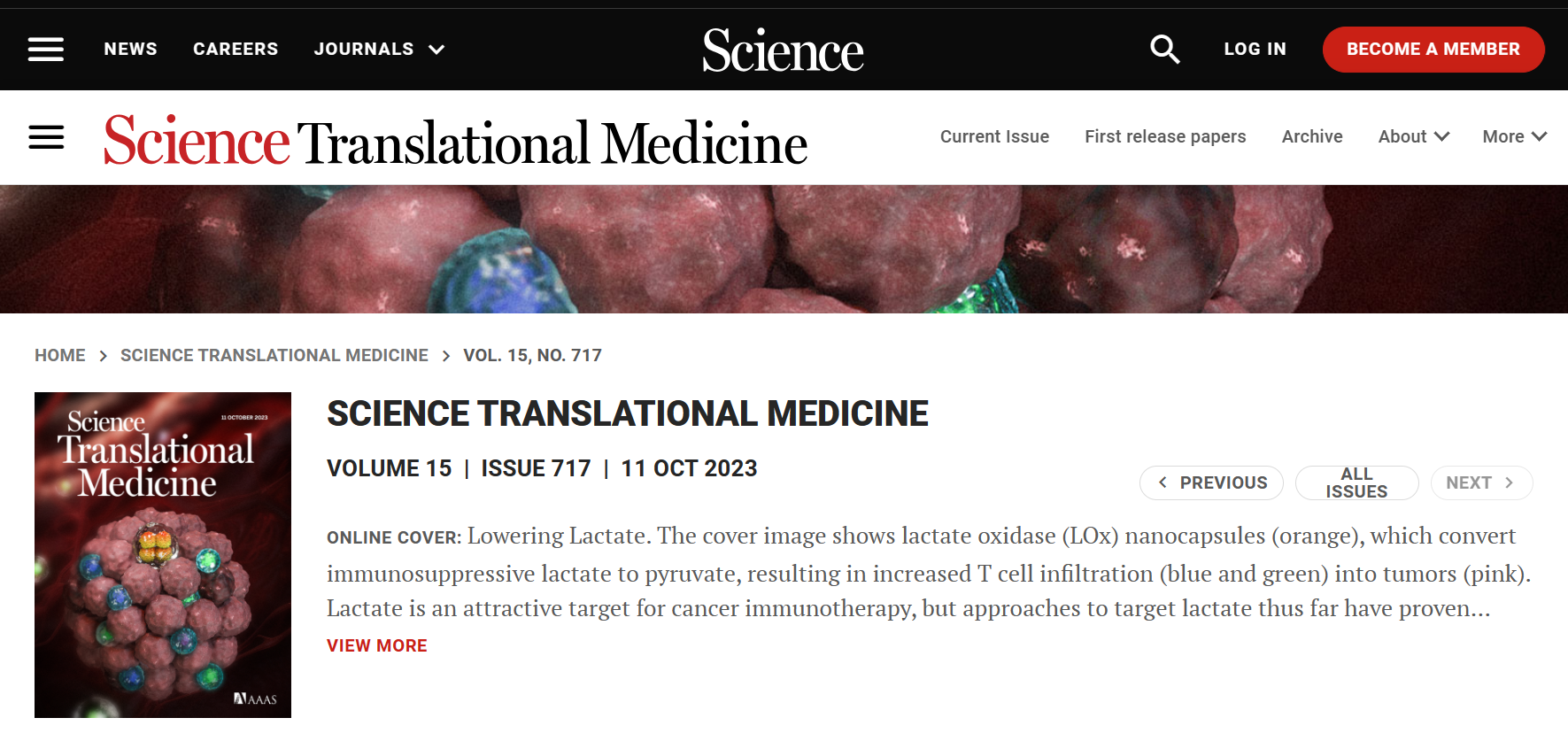Science Translational Medicine中稿封面
Oct 12,2023
The image designed by Sphere Studio is selected as the Cover of Science Translational Medicine in October.
Editor's summary
Lactate produced by tumor cells contributes to the immune suppressive tumor microenvironment by impairing effector T cell activity and promoting regulatory T cell function. Although strategies to deplete lactate have been tested, they have not proven successful because of non-specific toxicity. To address this problem, Cao et al. developed lactate oxidase nanocapsules that both reduced tumor-produced lactate concentrations and increased pro-inflammatory hydrogen peroxide. Lactate oxidase nanocapsule treatment improved responses to immune checkpoint blockade therapy in multiple murine models without causing toxicity, supporting further development of these nanocapsules. —Courtney Malo
Abstact
Cancer immunotherapy has reshaped the landscape of cancer treatment. We report herein a nanocapsule enzyme therapeutic based on lactate oxidase, which reduces lactate concentrations and releases immunostimulatory hydrogen peroxide, averting tumor immunosuppression and improving the efficacy of immune checkpoint blockade treatment. As demonstrated in a murine melanoma model and a humanized mouse model of triple-negative breast cancer, this enzyme therapeutic affords an effective tool toward more effective cancer immunotherapy.

PREV: Nature Catalysis中稿封面


